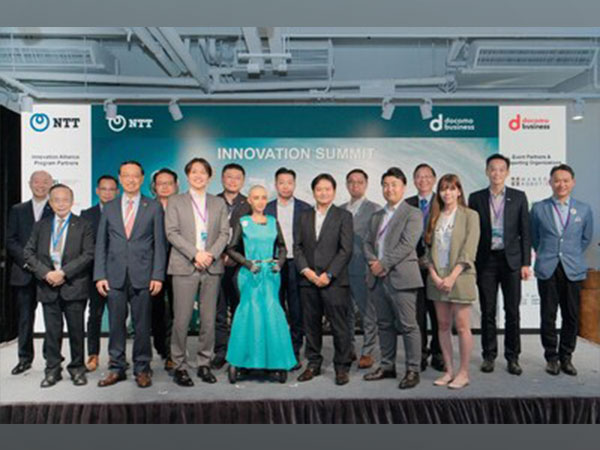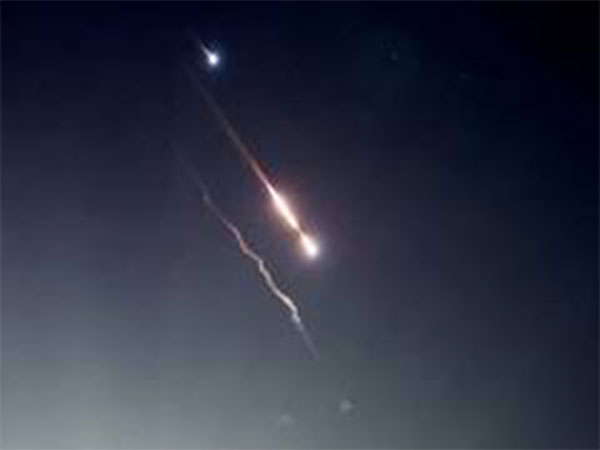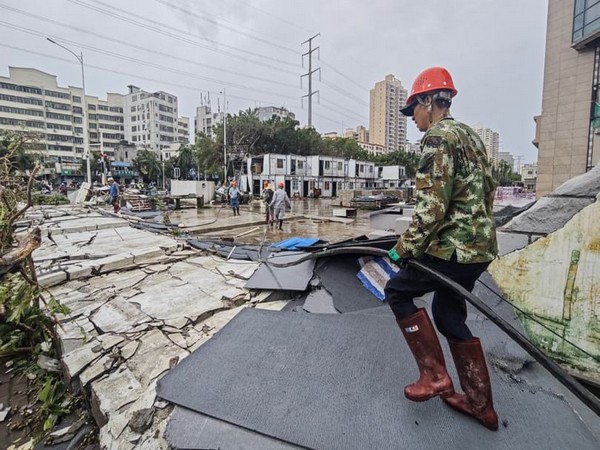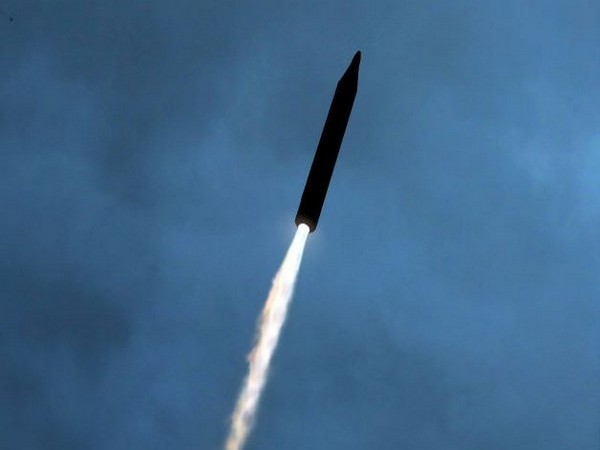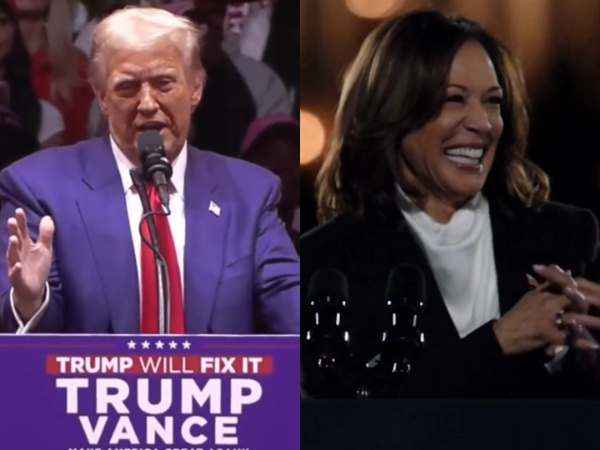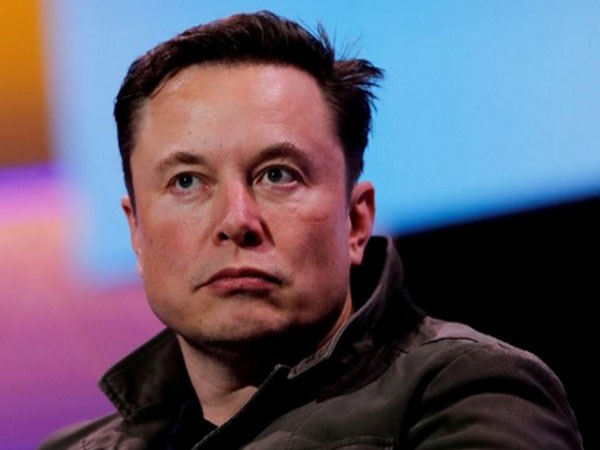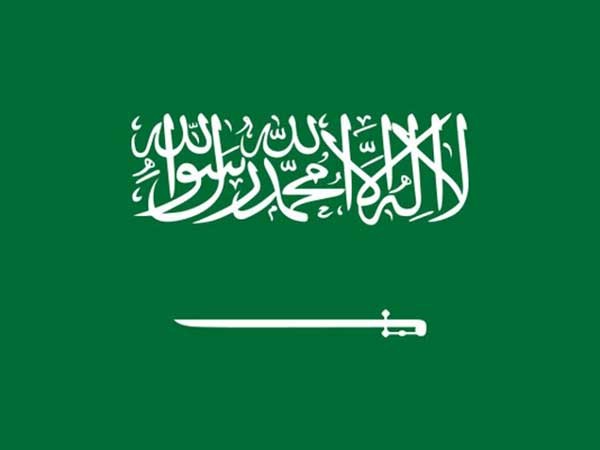
Saudi could invest in Iran 'very quickly'
Mar 16, 2023
Riyadh [Saudi Arabia], March 16: Saudi Arabia could start making investments in Iran "very quickly" after they agreed to restore diplomatic ties, the Saudi finance minister said on Wednesday, despite sweeping US sanctions against the Islamic republic. Mohammed Al-Jadaan said there were "a lot of opportunities" in Iran and that he couldn't see any reason to prevent investments taking place between the two Gulf heavyweights.
"I would say quickly," he told the Financial Sector Conference in Riyadh, when asked how soon Saudi Arabia could start making "significant" investments in Iran. "When people really stick to the principles of what was agreed, I think that that could happen very quickly." In a surprise, Chinese-brokered announcement on Friday, Saudi Arabia and Iran agreed to work towards restoring ties and reopening diplomatic missions within two months.
The oil-rich rivals, who are on opposing sides in conflicts across the Middle East, severed relations in 2016 after Saudi's execution of a Shiite cleric triggered violent protests. Iran has been under renewed US sanctions since then president Donald Trump abandoned a landmark nuclear agreement between Tehran and major powers in 2018. Saudi Arabia, a longtime US ally, has said it supports the sanctions, which target key areas, including oil.
But Jadaan said: "There is no reason for (investments) not to happen. I mean, Iran is our neighbor and has been and will continue to be for hundreds of years. So I don't see any issue that would prevent the normalization of the relationship across investments. as long as we stick to the agreement, you know, respecting sovereign rights, not interfering in other affairs." He added: "I think that there are a lot of opportunities in Iran, and we provide a lot of opportunities for them."
A Saudi official said Wednesday Chinese leader Xi Jinping approached Saudi Arabia's crown prince last year about Beijing serving as a "bridge" between the kingdom and Iran, jump-starting talks that yielded last week's surprise rapprochement. The initial conversation between Xi and Crown Prince Mohammed bin Salman took place during bilateral talks at a summit in Riyadh in December, said the official, who spoke on condition of anonymity to describe how the deal - whose ripple effects could spread across the Middle East - took shape.
"The Chinese president expressed his desire for China to be a bridge between Saudi Arabia and Iran. His Royal Highness the Crown Prince welcomed this," the official said, later adding that Riyadh sees Beijing as in a "unique" position to wield unmatched "leverage" in the Gulf. "For Iran in particular, China is either No 1 or No 2 in terms of its international partners. And so the leverage is important in that regard, and you cannot have an alternative that is equal in importance," the official said.
Several other meetings also laid the groundwork for last week's talks in Beijing, according to the official. They included a brief exchange between the Saudi and Iranian foreign ministers during a regional summit in Jordan in late December; talks between the Saudi foreign minister and Iran's deputy president during the inauguration of Brazilian President Luiz Inacio Lula da Silva in January; and a visit by Iranian President EbrahimRaisi to Beijing in February.
China's role makes it more likely the terms of the deal will hold, the official said. "It is a major stakeholder in the security and stability of the Gulf," the official said. The agreement identifies a two-month window to formally resume diplomatic ties severed seven years ago. It also includes vows for each side to respect the other's sovereignty and not interfere in the other's "internal affairs".
China's involvement raised eyebrows given Saudi Arabia's historically close partnership with the United States, though that relationship has been strained by issues including human rights and oil production cuts approved last year by the OPEC+ cartel. "The US and China are both very important partners. We certainly hope not to be. party to any competition or dispute between the two superpowers," the official said Wednesday.
US officials were briefed before the Saudi delegation travelled to Beijing and before the deal was announced, the official said. The talks in Beijing involved "five very extensive" sessions on thorny issues including the war in Yemen. Iran-backed Houthi rebels seized control of Yemen's capital in 2014, prompting a Saudi-led intervention the following year and fighting that has left hundreds of thousands dead and caused one of the world's worst humanitarian crises.
The Saudi official said the talks produced "concrete commitments" on Yemen, but he would not disclose them. "Iran is the main supplier of weapons, training and ideological programs and propaganda expertise to the Houthis and we are the main victim of these missiles and drones and other stuff. So Iran can do a lot and should do a lot," the official said, adding that Iran should stop "supplying the Houthis with weapons".
Riyadh is in "back channel" talks with the Houthis to revive a truce that expired in October and push towards a political settlement involving all Yemeni factions, the official said. "We also share a long border with Yemen, and certainly we will not tolerate any threat to our security from any place. And again, Iran can and should play a major part in promoting this and we hope it will," the official said.
The Beijing talks also saw the renewal of a commitment by both sides not to attack each other in the media, the official said. But the official said Saudi Arabia does not have control over Iran International, a London-based, Persian-language channel that Tehran considers a "terrorist organization". "Regarding Iran International, we continue to assert that it is not a Saudi media outlet and has nothing to do with Saudi Arabia. It is a private investment," the Saudi official said. The next step in implementing the rapprochement deal is a meeting between the Saudi and Iranian foreign ministers, but no date has been set, the official said. - AFP
Source: Kuwait Times


